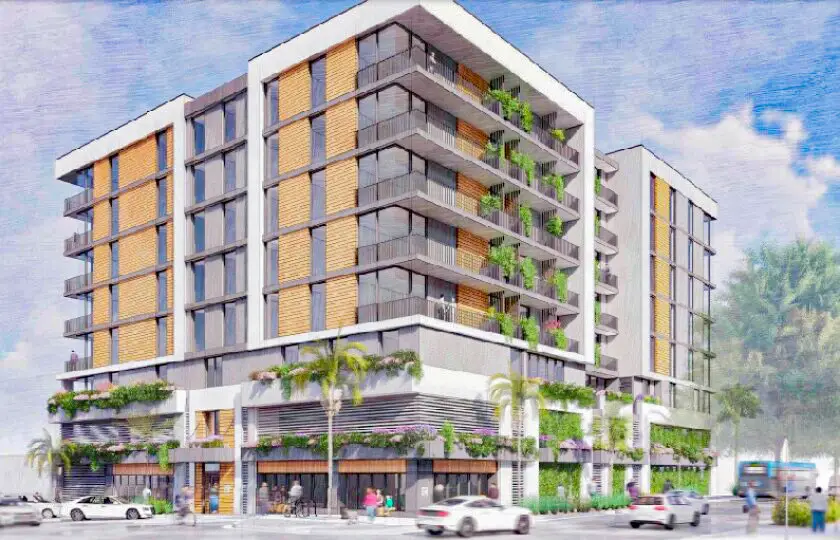OCEANSIDE — The City Council once again approved a revised version of the Seagaze mixed-use project last week, shifting from its original plan of incorporating hotel rooms to focusing solely on studio apartments.
The Seagaze project, which the City Council initially approved in 2022, aims to develop 115 studio apartments and 64 hotel rooms within a 15,589-square-foot parking lot at 712 Seagaze Drive. The hotel will occupy the top two floors of the eight-story building.
However, last year, Kansas-based Elsey Holdings, LLC., the developer behind the project, sought a revision to replace the hotel rooms with apartments, citing challenges in securing financing for the hotel component amid evolving economic conditions.
“Recent economic fluctuations have made financing the hotel portion of the project increasingly difficult,” said Kelly Kanaster of the Carlsbad-based Lightfoot Planning Group, which represents the developer.
The City Council’s unanimous approval on March 13 greenlights the Seagaze project to construct 179 studio apartment units. Originally projected to have a density of 321 dwelling units per acre, the revised plans will see the density escalate to 500 dwelling units per acre.
The studio apartments will be approximately 300 square feet each.
The number of units designated for low-income households has been raised from 12 to 18 to accommodate the project’s heightened density.
Since the project was initially approved before the city implemented an 86-dwelling unit per acre density cap, Seagaze remains exempt from this limit.



